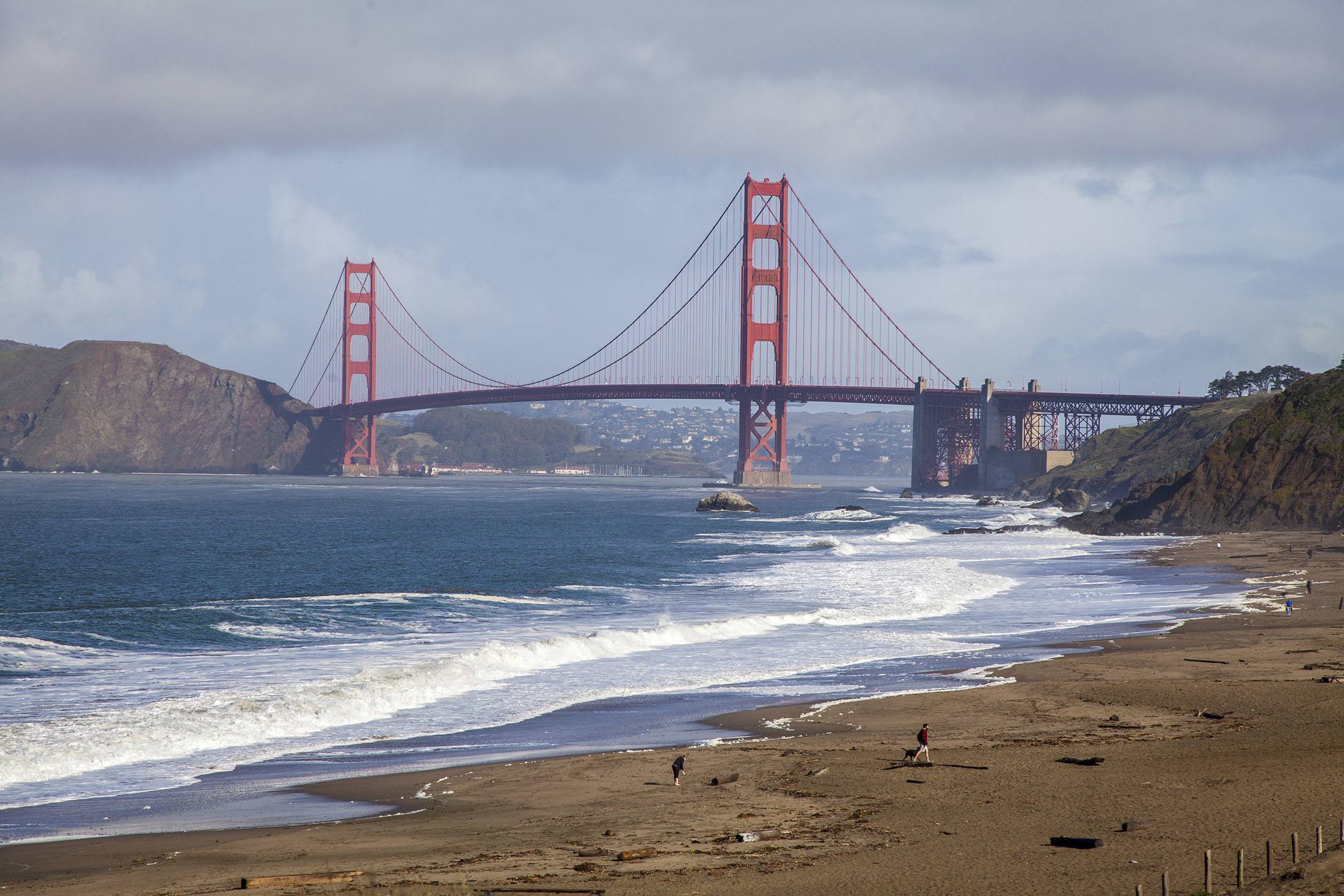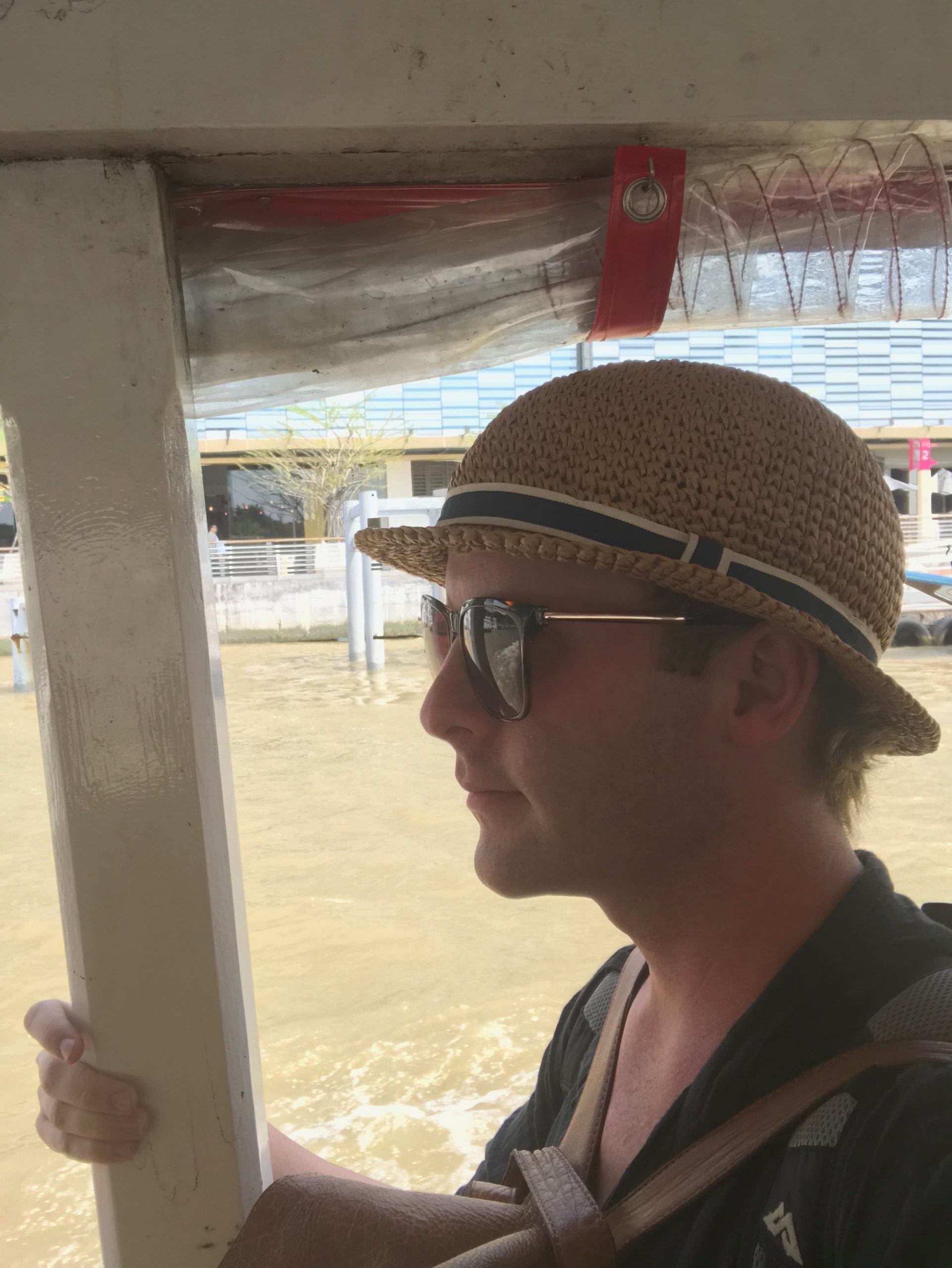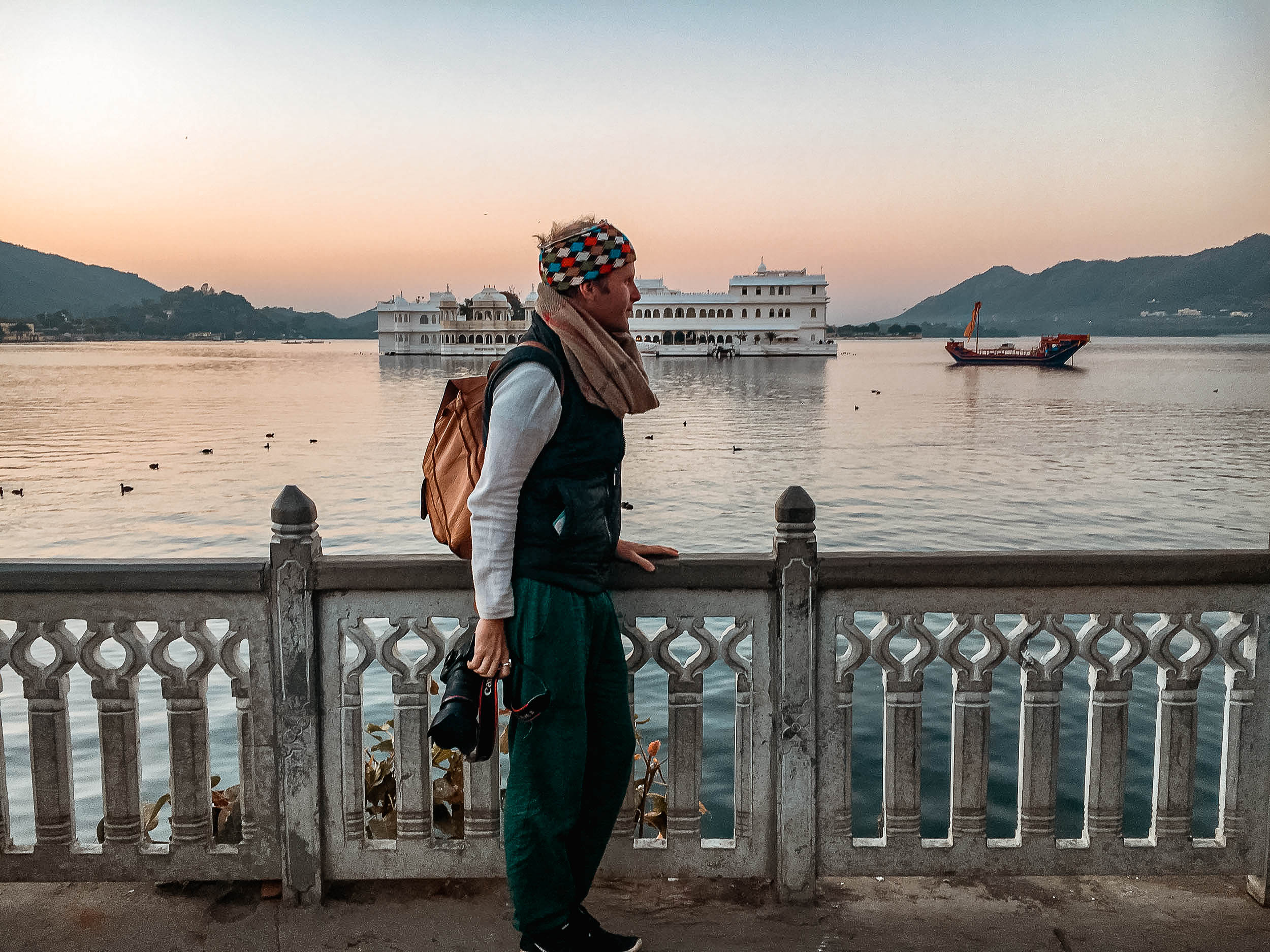Travelling can be an incredibly enriching experience. But with any journey comes a degree of risk. From lost luggage to medical emergencies, there are countless variables that can quickly turn your dream trip into a nightmare.
That's why, in my two decades of travelling, I've never once left home without travel insurance. It's an essential safeguard against the unforeseen, providing peace of mind and protection in even the most challenging situations.

But with so many policies and providers on the market, how do you know which travel insurance to choose? How do you know that you're buying the right travel insurance for your needs? That's where this guide comes in.
In this article, I'll be sharing my tips for buying good, reliable travel insurance that will keep you protected and stress-free on your next adventure. From understanding the different types of coverage to knowing what to look for in a policy, you'll have all the information you need to make an informed decision.
So, grab a snack, sit back, and let's dive into the world of travel insurance.
Why You Need Travel Insurance
It's important to keep in mind that unexpected mishaps can happen while traveling.
I've seen this first-hand - I once had pneumonia while in Mexico and required medical assistance, which was covered by my travel insurance.
Another time, I was hospitalised with rotavirus in Thailand and the medical expenses were taken care of by my World Nomads.
In Manila, I was drugged and robbed, resulting in the loss of nearly $10,000 in camera equipment. World Nomads again came to the rescue! Replacement costs were covered.
And when the pandemic hit and I needed support getting to Australia, my travel insurance provider was there to help me navigate the complicated travel restrictions and requirements.
Not having insurance on each of these occasions would have been a colossal and costly mistake.
With these experiences in mind, I strongly recommend that all travellers invest in travel insurance – it’s a protection from unexpected incidents that can happen.
Some specific benefits of travel insurance include:
Medical Coverage
- This is perhaps the most crucial aspect. In the event of an illness or injury, medical expenses can quickly pile up. Good travel insurance should cover emergency medical treatment, hospitalisation, and evacuation if necessary.
Trip Cancellation/Interruption
- If unforeseen circumstances force you to cancel or cut short your trip, travel insurance can provide coverage for the costs involved.

Lost or Stolen Belongings
- Losing your luggage or having valuable items stolen while travelling can be a nightmare. Travel insurance can provide coverage for the replacement of lost or stolen items, as well as reimbursement for any emergency purchases you may need to make.
Determine Your Coverage Needs
Before you start shopping for travel insurance, it's important to assess your individual needs to determine what type of coverage you need.
Consider the following factors:
Destination
- If you're travelling to a country with high medical costs or a risk of political instability, you may need more comprehensive coverage. Additionally, some countries require visitors to have certain types of coverage in order to enter.
- Let's say you're planning a trip to the United States, where medical costs are notoriously high. In this case, you'll want to make sure your travel insurance policy includes coverage for medical expenses, hospitalisation, and emergency medical evacuation.

- Additionally, some countries, such as those in the Schengen Area, require visitors to have a minimum amount of medical coverage in order to obtain a visa or enter.
Activities
- If you're planning to participate in adventure sports or other high-risk activities, you may need a policy that specifically covers those activities.
- Scuba diving, skydiving, or participating in other adventure sports, will mean you’ll need to look for a policy that specifically covers them.
- Most standard travel insurance policies exclude coverage for activities deemed to be high-risk – they’re considered to be additional purchases.
Travel Duration
- The length of your trip can also impact your coverage needs. If you're only travelling for a few days, a basic policy may be sufficient. However, if you're planning a long-term trip, you may need a policy that provides coverage for a longer period.
- Let's say you're planning a backpacking trip around Southeast Asia that will last several months. In this case, you'll want to look for a policy that provides coverage for the entire duration of your trip.

- Many travel insurance policies have a maximum trip length, so it's important to read the policy carefully to ensure it covers the duration.
- Additionally, some policies may offer discounts for longer trips or provide more comprehensive coverage for extended travel.
Once you've assessed your individual needs, you can start shopping for a policy that provides the right type and level of coverage. By taking the time to determine your coverage needs upfront, you can ensure that you have adequate protection.
Consider Types of Travel Insurance
There are several types of travel insurance policies to choose from, depending on your needs and the type of trip you're taking. I’ve used many of them, given the nature of my travels over the years has been diverse.
Some common types include:
Single Trip
- As the name suggests, this type of policy provides coverage for a single trip, typically lasting up to 30 days.
Annual/Multi-Trip
- If you're a frequent traveller, an annual or multi-trip policy may be a better option. This type of policy provides coverage for an entire year, allowing you to travel as much as you like within that time period.
Backpacker/Long-Term
- If you're planning a long-term trip or travelling on a tight budget, a backpacker or long-term policy may be the best choice.

- These policies typically provide coverage for trips lasting up to a year or more and may offer more limited coverage in exchange for lower premiums.
What to Look For in a Policy
When shopping for travel insurance, it's important to carefully read the policy details (which should align to your specific needs, mentioned earlier). Some things to look for include:
Coverage Limits
- Make sure the policy provides adequate coverage for medical expenses, trip cancellation, and lost or stolen belongings.
Exclusions
- Read the policy carefully to ensure that you understand what is and isn't covered.
- For example, some policies may exclude coverage for adventure activities or pre-existing medical conditions.
Take your time to carefully consider the fine details.
Research Insurance Providers
Now it's time to research travel insurance providers and their policies. Here are some key things to consider when evaluating companies:
Coverage
- Look for a provider that offers coverage that meets your needs, as already detailed (above). This includes medical coverage, trip cancellation/interruption coverage, and coverage for any activities you plan to participate in (including those that are deemed high-risk).
- Make sure you read the policy carefully to understand what is and isn't covered.
- Let's say you're planning a scuba diving trip to the Great Barrier Reef in Australia. In addition to standard medical coverage, you'll want to make sure your policy includes coverage for scuba diving accidents and emergency evacuation, as these can be costly if not covered by insurance.
- You'll also want to check if any pre-existing medical conditions are covered, as some policies may exclude coverage for certain conditions.
Price
- Of course, price is a consideration for most travellers. Keep in mind that the cheapest policy may not always be the best value, especially if it doesn't provide the coverage you need.
- Look for a policy that offers a good balance of coverage and affordability.
- Suppose you're a budget traveller and are looking for the most affordable policy that meets your needs. You can use travel insurance comparison websites such as Squaremouth or InsureMyTrip to compare prices from different providers and find the best value.
- Keep in mind that some policies may have lower prices but higher deductibles or lower coverage limits, so be sure to read the fine print before choosing a policy based solely on price.
Reputation
- It's important to research the reputation of the insurance provider you're considering. Look for reviews from other travellers, either online or through word of mouth.
- Let’s say you're planning a backpacking trip through East Africa and want to find a reliable insurance provider. You can search online for reviews from other travellers (in travel forums or on TripAdvisor, for example) who have used different providers or ask for recommendations from friends who have travelled to the same region. Look for providers with a high overall rating and positive reviews for customer service and claims processing.
- You can also check with industry organisations like the U.S. Travel Insurance Association or the Better Business Bureau to see if the provider has any complaints or negative reviews.
Financial Stability
- Ensure that the insurance provider is financially stable and able to pay out claims if necessary. Look for providers with high financial strength ratings from independent rating agencies like A.M. Best or S&Ps Global Ratings.
- Look for providers with a rating of at least A- or higher to ensure they have the financial resources to pay out claims if necessary.
When comparing different providers, I often create a spreadsheet or chart to compare the coverage, price, reputation, and financial stability of each provider side by side. This helps me make an informed decision and choose the provider that best suits my solo-travel needs.
Check for Pre-Existing Medical Conditions
When purchasing travel insurance, it's important to disclose any pre-existing medical conditions you may have. Some insurance policies may exclude coverage for pre-existing illnesses, which could leave you vulnerable to significant expenses if you experience a medical emergency while travelling.
Here are some things to keep in mind:
Coverage
- Let's say you have a history of heart disease and are planning a trip to Europe. If you have a heart attack while travelling and need medical attention, your travel insurance may not cover the costs if your condition is considered a pre-existing medical condition. However, if you disclose your condition when purchasing the policy, you may be able to obtain coverage for medical expenses related to your heart condition.
- It's important to read the policy details carefully and understand how pre-existing medical conditions are defined and covered.
Cost
- Suppose you have a pre-existing medical condition that requires ongoing treatment, such as diabetes or asthma. You'll want to make sure that your travel insurance policy covers the cost of any necessary medical treatment while you're traveling, as well as any medications or supplies you may need.
- Without coverage for pre-existing conditions, these costs can quickly add up and become a significant financial burden.
Disclosure
- Disclose all your medical history, even if you don't think a particular condition is relevant to your trip. This is because insurance companies may deny claims if they discover that you failed to disclose something.
- For example, if you have a history of migraines and experience a migraine while travelling and require medication through a General Practitioner, your claim for the medical consultation and medications may be denied if you did not disclose your history when purchasing the policy.
In short, checking for and disclosing pre-existing medical conditions is an important step in purchasing travel insurance, in ensuring you are suitably covered.
Consider Add-Ons and Upgrades
While a basic travel insurance policy may cover the essentials, there are often add-ons and upgrades that can enhance coverage. It's important to evaluate whether these options are necessary (based on your individual needs and preferences).
Some common add-ons include:
Adventure Sports
- If you plan to participate in adventure sports like skiing, scuba diving, or bungee jumping, this add-on provides coverage for injuries or equipment damage that may occur during these activities.
- For example, Mary is an avid skier and decides to take a trip to the Swiss Alps. She purchases a basic travel insurance policy but also adds on the Adventure Sports Coverage to ensure that any injuries she sustains while skiing are covered.
- Unfortunately, on her second day on the slopes, Mary takes a bad fall and breaks her leg. Thanks to the add-on, her medical expenses and emergency evacuation are covered, and she is able to recover without worrying about the cost.
Cancel for Any Reason
- This upgrade allows you to receive a partial reimbursement of your non-refundable expenses if you cancel your trip.
- Take John, who is planning a trip to Europe with his girlfriend, but they are unsure if they will be able to go due to a family emergency. To give them peace of mind, John upgrades their policy to include Cancel for Any Reason.
- A week before their scheduled departure, the family emergency worsens, and they decide to cancel their trip. Because of the upgrade, they are able to receive a partial reimbursement of their non-refundable expenses.
Rental Car Collision
- If you plan to rent a car during your travels, this add-on covers damages or theft of the rental car.

- Here’s Samantha. She is planning a road trip along the Great Ocean Road between Victoria and South Australia and decides to rent a car. She purchases a basic travel insurance policy but also adds on Rental Car Collision Coverage.
- Unfortunately, while driving out of Melbourne, she accidentally hits a parked car. Thanks to the add-on, the damages to the rental car and the other car are covered, and Samantha is able to continue her trip without worrying about the cost.
Electronic Devices
- This add-on provides coverage for lost, stolen, or damaged electronic devices like smartphones and laptops.
- For example, if you're travelling with expensive camera gear, this add-on can be a lifesaver. In the event that your equipment is stolen, lost, or damaged, the insurance policy will provide coverage for repair or replacement costs.

- For instance, when I was drugged and robbed by the Atavan gang in Manila, they stole nearly $10,000 worth of equipment, but because I had coverage with World Nomads for all my equipment, nearly all costs were covered.
- This add-on can be particularly valuable for digital nomads or anyone who relies on technology for work or personal use while travelling.
Evaluate whether these add-ons are necessary based on your specific needs. If you don't plan on participating in adventure sports or renting a car, for example, you likely won’t need them.
Factor the additional cost into your overall travel budget. Add it to the spreadsheet you’ve started.
Check if your Credit Card Offers Travel Insurance
In addition to standalone travel insurance policies, some credit cards offer travel insurance as a benefit to cardholders.
To check if your credit card offers travel insurance, start by reviewing the terms and conditions of your card. Look for information about the type of coverage offered, any exclusions, and any limitations on coverage.

Credit card travel insurance typically provides more limited coverage than standalone travel insurance policies. For example, it may only provide coverage for certain types of trips, such as those booked using the card or those that meet certain criteria. Coverage limits may be lower and deductibles higher than standalone policies.
If you are planning a trip that involves higher risks or requires more comprehensive coverage, a standalone policy may be a better option. However, if your trip is relatively low-risk and the coverage provided by your credit card meets your needs, relying on it for travel insurance could save you money.
Examples:
- John has a credit card that offers travel insurance as a benefit. Before his upcoming trip to Europe, he reviews the terms and conditions of his card to see what coverage is provided. He finds that the coverage is limited, so he decides to purchase a standalone travel insurance policy.
- Sarah is planning a weekend getaway to a nearby beach. She has a credit card that offers travel insurance, and after reviewing the coverage provided, she determines that it meets her needs for this low-risk trip. She decides to rely on her credit card travel insurance and save the money she would have spent on a standalone policy.
It is important to understand what coverage your credit card offers and whether it meets your needs before relying on it.
Purchase Travel Insurance in Advance
Even though purchasing travel insurance may not be the most exciting part of planning a trip, ensure you have it before you depart.
Purchase it, if possible, after booking your trip. Doing so has always given me peace of mind, particularly when I’m rushing around in the final hours before departure – the last thing I want to be thinking about is researching and booking travel insurance. Get it out of the way early, or once itinerary and trip details are decided.

Some travel insurance providers have deadlines. For example, some policies may require that you purchase coverage within a certain number of days after booking your trip to be eligible for certain benefits, such as conditions relating to pre-existing medical conditions. Know the terms and conditions inside out.
Purchasing in advance can help you avoid any potential gaps. For example, if you wait until the last minute then experience a travel delay or cancellation, you may not be covered if the event was already in progress before you bought your policy.
Examples:
- Jack is planning a trip to Europe in six months. He books his flights and accommodation right away and then begins researching travel insurance providers. He decides to purchase a policy two weeks later, well in advance of his trip, to ensure he is covered for any unforeseen circumstances.
- Sarah books a last-minute trip to Mexico and realises she forgot to purchase travel insurance. She quickly researches providers and purchases a policy the day before she leaves. Unfortunately, her flight is cancelled due to weather, but she is not covered because the delay occurred before she purchased her policy.
Review and Understand Your Policy Before You Leave
Make sure you understand the coverage, any exclusions, and the process for filing a claim in case of an emergency. This will help you avoid any surprises or confusion in case something unexpected happens during your travels.
For example, if your policy includes coverage for trip cancellations, make sure you understand what qualifies as a covered reason for cancellation. If your policy includes medical coverage, make sure you understand what types of medical expenses are covered and if there are any limitations or restrictions.

It's also essential to know what to do in case of an emergency. Make sure you have the necessary contact information for your insurance provider and know how to file a claim. Some providers may require you to contact them before seeking medical treatment (which has always been the case for me), so it's essential to know what their specific requirements are.
Know the Common Exclusions
While travel insurance is essential for any trip, it's important to understand that not everything is covered by all policies. There are several common exclusions that travellers need to be aware of when purchasing travel insurance:
Acts of terrorism
- Some policies exclude coverage for incidents related to acts of terrorism. This can include cancellation of a trip due to a terrorist attack or medical expenses incurred as a result of an attack.
Natural disasters
- While some policies may cover natural disasters such as hurricanes or earthquakes, others may exclude it.
Alcohol or drug-related incidents
- Many policies exclude coverage for injuries or accidents that occur while under the influence of alcohol or drugs.
War or civil unrest
- Some policies may not cover incidents related to war or civil unrest.
Pregnancy
- Pregnancy-related expenses may be excluded from some travel insurance policies, particularly if the pregnancy is considered high-risk.
Non-essential travel
- If you are traveling to a country against the advice of your government, some travel insurance policies may not provide coverage.
And, of course, there are those that I’ve already mentioned, which include pre-existing medical conditions and adventure sports.
Carefully read the policy and understand what is and is not covered. If there are any exclusions that you feel are essential to your travel plans, consider looking for an alternative or even an additional policy.
Consider Tips for Saving Money on Travel Insurance
Travel insurance is a valuable investment, but it can take a significant chunk out of your travel budget. Fortunately, there are ways to save money without sacrificing coverage.
Here are some practical tips regarding how to save money on travel insurance:
Choose the right coverage
- One of the most common mistakes travellers make when purchasing travel insurance is over-insuring. Make sure you choose a policy that meets your specific needs and travel plans. For example, if you're traveling domestically, you may not need trip cancellation coverage.
Compare policies
- Don't settle for the first travel insurance policy you come across. Shop around and compare policies from different providers to ensure you're getting the best value for your money. Look for policies that offer the coverage you need at a price you can afford. Use InsureMyTrip, Squaremouth or Policygenius to research.
Consider annual policies
- If you travel frequently, consider purchasing an annual travel insurance policy instead of a single-trip policy. This can save you money in the long run and provide coverage for multiple trips throughout the year.
Take advantage of discounts
- Some travel insurance providers offer discounts for various reasons such as being a senior citizen, a student, or a member of a certain organisation. Check if you are eligible for any discounts before handing over money.
Review and Compare Reputable Travel Insurance Companies
If you're looking for some of the best travel insurance companies, consider these options:
World Nomads
- Known for comprehensive coverage for adventure travellers.
- Pros - their policies are available for residents of over 150 countries; offer customisable plans to fit individual needs.
- Cons - May be more expensive compared to other travel insurance companies; may not offer coverage for certain pre-existing medical conditions.
Allianz Global Assistance
- Offers a wide range of coverage options.
- Pros – provide coverage for pre-existing medical conditions; support is 24/7; policies are available for residents of multiple countries.
- Cons - Policies can be more expensive compared to other travel insurance companies; may have some limitations on coverage.
Travelex Insurance Services
- Offers comprehensive coverage.
- Pros - offers coverage for trip cancellation and interruption, emergency medical expenses, and baggage loss; policies can be customised based on individual needs.
- Cons - policies can be expensive; may not offer coverage for certain extreme sports or activities.
IMG
- Known for its coverage for medical diverse circumstances.
- Pros – Reliably cover medical expenses, trip interruption, and medical evacuation; policies are available for residents of multiple countries.
- Cons - Policies tend to be expensive; may not offer coverage for certain extreme sports or activities.
AXA
- Offers a range of policies for individual and family travel
- Pros - Cover for medical expenses, trip cancellation, and baggage loss; policies are available for residents of multiple countries.
- Cons – Expensive policies; may not cover some extreme sports or activities.
IATI Travel Insurance
- A UK-based travel insurance provider that offers a range of coverage options for individuals and families.
- Pros – Offer cover for medical expenses, trip cancellation, and baggage protection; positive reviews for customer service and affordable rates; policies are available for residents of the UK and other select countries.
- Cons - Policies may not be available for residents of all countries; may not provide coverage for certain extreme sports or activities.
Note: World Nomads, Allianz Global Assistance, Travelex Insurance Services, IMG, and AXA are multinational companies, while IATI Travel Insurance is based in the UK.
Of course, there are many other travel insurance companies out there, and the best one for you will depend on your individual needs and preferences. Be sure to do your research and compare policies before making a decision.
Buying the Right Travel Insurance
I hope this article helps you in choosing a travel insurance provider that best suits your travel needs.
Please contact me if you have any concerns, queries or feedback. Leave a comment below.
